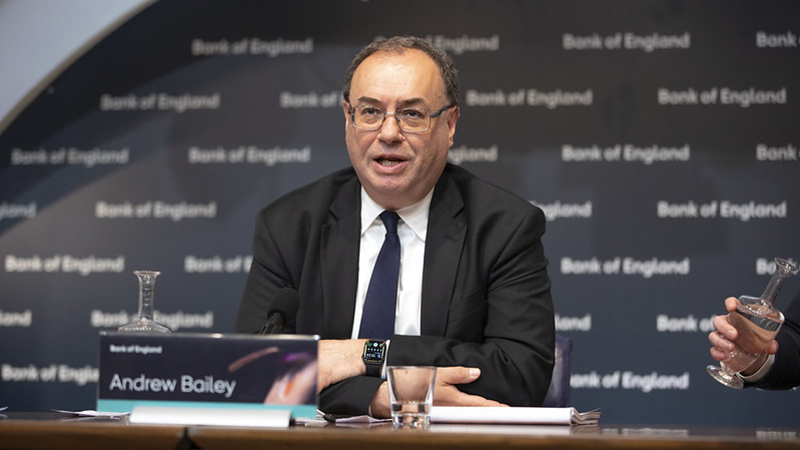The UK economy will plunge into a recession in the final quarter this year, the Bank of England has warned, after implementing its first half-point interest rate increase in nearly three decades.
As widely predicted, the monetary policy committee voted to lift interest rates to 1.75%. The decision was almost unanimous with eight members backing a 50 basis points increase, with just Silvana Tenreyro supporting a more dovish 25bps hike.
The hawkish hike, the largest single increase since 1997, comes as the BoE slashes its growth forecasts for the UK. It now predicts the economy will enter a slowdown in Q4 this year, lasting five consecutive quarters. However, it will be less severe than the slumps seen during Covid and the global financial crisis and more comparable to the recession in the early 1990s.
In the final quarter of 2022, it expects inflation will peak at an eye-watering 13% and remain at “very elevated levels” for much of 2023. However, it forecasts inflation will fall back down to its 2% target two years later.
Right call?
The BoE is hell-bent on crushing inflation, which hit another 40-year high of 9.4% in June, but it has been accused of doing too little too late and piling additional pressures on consumers who are already enduring a cost-of-living squeeze and rising taxes.
“One would hope that the biggest single rate rise since 1995 would be the knockout punch in the fight against inflation, but there is little to suggest it will supress the underlying drivers currently driving up prices,” said Jeremy Batstone-Carr, European strategist at Raymond James.
“A more patient approach would have been almost as effective, and giving the country its best chance of avoiding a much-feared recession.”
Batstone-Carr points out the “prevailing inflationary tsunami” does not stem from internal demand excess, as it has been the case previously, but from external factors over which monetary policy-setters have no control.
“Rate hikes won’t solve the increasingly urgent food supply challenges or remedy the shortage of natural gas.”
Incoming Tory leader faced with poisoned chalice
The super-sized August hike also “does little to alleviate downward pressures on the pound,” said George Lagarias, chief economist at Mazars, since the Federal Reserve has moved more aggressively in the past few months.
Sterling moved 0.5% lower against both the euro and the dollar shortly following the news.
Longer dated gilt yields have also fallen, Shane O’Neill, head of interest rates at Validus Risk Management notes, with the 2s10s curve inverting for the first time since 2019.
“The dreary predictions from the MPC represent ongoing pain for the consumer and focus will quickly turn to politicians to act – with Liz Truss the heavy favourite to take the Tory leadership, she may find the position a poisoned chalice as she takes the wheel just as we enter the worst recession in over a decade.”







